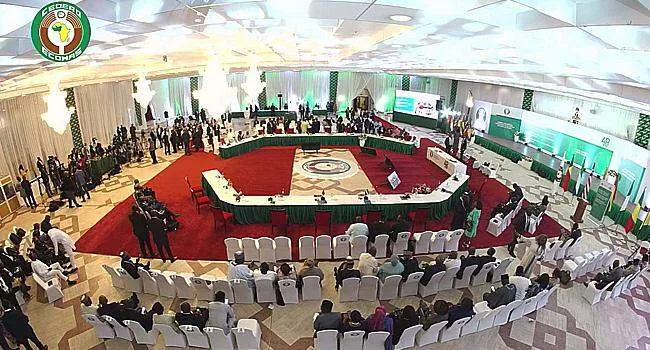
NIGER: ECOWAS PARLIAMENT DIVIDED OVER OPTION OF WAR, DEFENCE HEADQUARTERS BEGINS BUILD-UP
By Oduola F.A.
Members of the Economic Community of West African States (ECOWAS) parliament have expressed differing opinions on the option of military action in restoring democracy in Niger Republic.
NAN reports that the views were discussed on Saturday during a virtual extraordinary meeting of 22 parliamentarians to talk about the current crisis in Niger.
The regional organisation has been deliberating over a number of responses to the military coup that took place on July 26 to take control of the landlocked nation.
In a recent development on Thursday, ECOWAS directed the deployment of standby military troops to restore constitutional order in Niger.
While some lawmakers insisted on the use of diplomacy and dialogue to address the situation, others were of the opinion that diplomacy has contributed to the increase in the spate of military takeovers in the West African sub-region.
Ali Djibo from Niger Republic said at least 9,000 schools have already been closed down owing to the crisis.
He argued that if the ECOWAS treaty is to be applied in Niger, then it should also be applicable to all other member states in the eventuality of a coup.
“War will only compound the economic woes the people of the sub-region are already going through,” Djibo said.
“As we speak, over a thousand trucks, loaded with goods, are stranded at the border.
“If a coup happened in Nigeria or Cote’d’Iviore tomorrow, where’s the ECOWAS going to mobilise troops to fight the Nigerian or Ivorian military? How many borders are we going to close?
“We must also bear in mind that if we’re applying the ECOWAS treaty, it should be applicable to all.”
Defence Headuarters Begins Build-up Preparation For Potential War
A separate report has now claimed that the Defence Headquarters has commenced build-up preparations for the possible mobilisation of troops and equipment for a possible confrontation with the junta in Niger Republic.
The Nigerian military high command, it was gathered, had directed the service chiefs to compile and submit war requirements such as the number of personnel, equipment, logistics and financial costs to the Chief of Defence Staff.
According to the reports, the development is the preliminary stage in the planning process of amassing human and material resources required for the planned military intervention in Niger.
A leaked memo indicated that about two battalions would be required to prosecute the war against the junta in Niger Republic.
A battalion is a military unit typically consisting of 300 to 1,000 soldiers commanded by a lieutenant colonel, and subdivided into a number of companies (usually each commanded by a major or a captain).
